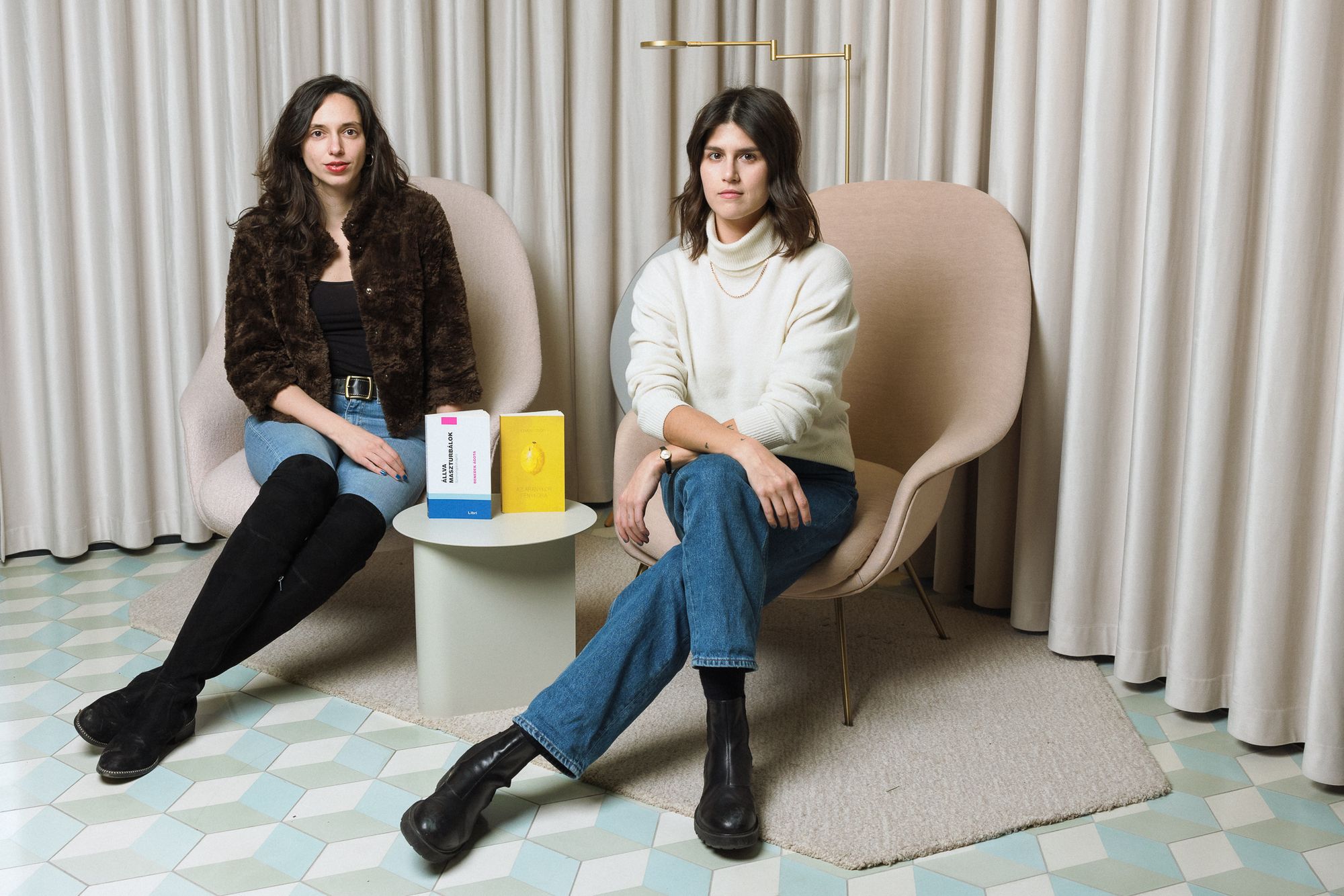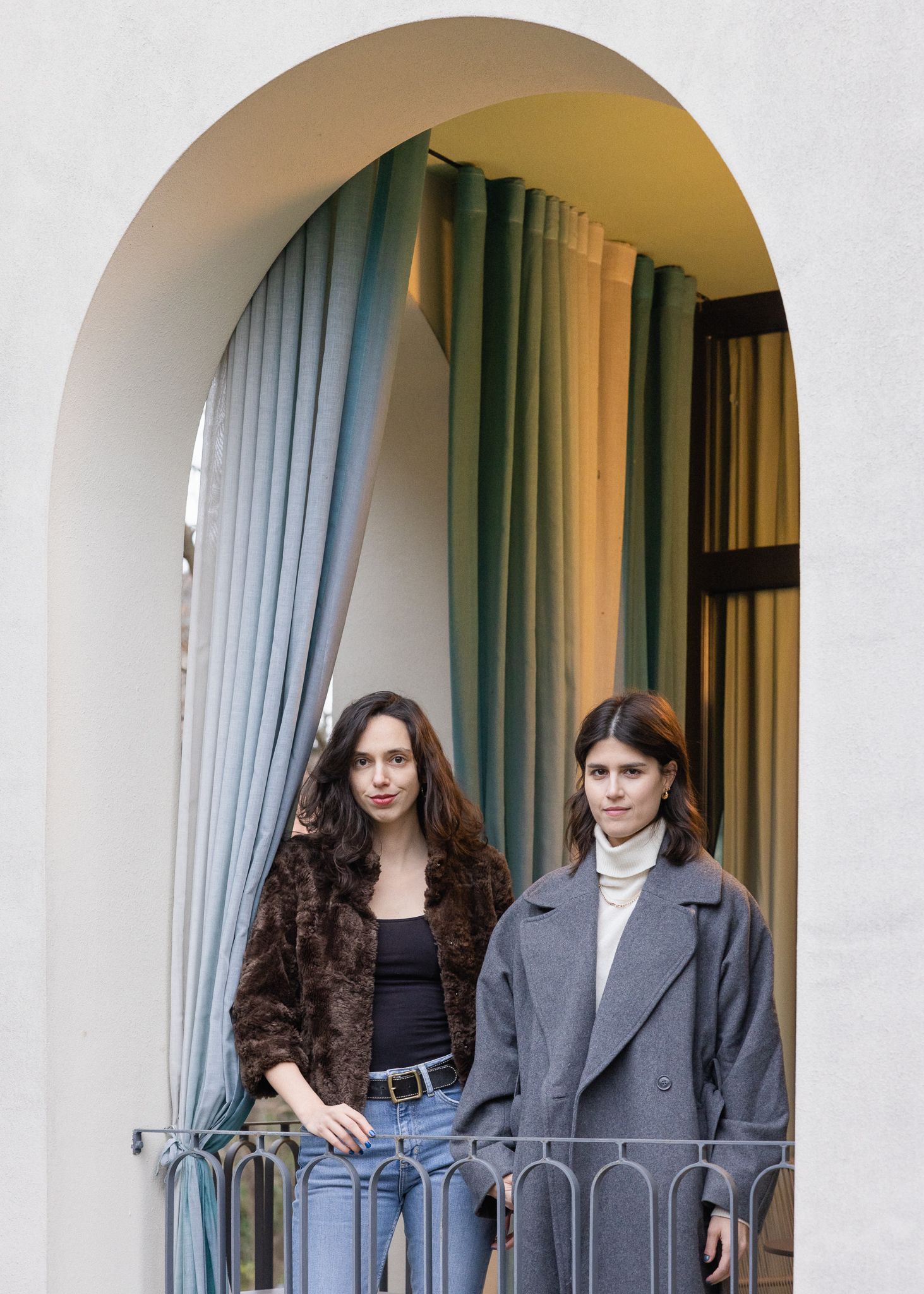What happens when a woman swears in her book, and how does it feel when your dad is the first reader of your sex scenes? These are some of the things we talked about with two writers who have just released their new books: Zsófi Kemény (Az aranykor fénykora [The heydays of the Golden Age—the Transl.]) and Ágota Benedek (Állva maszturbálok [I masturbate standing—the Transl.]).
One of your signature traits is that you don’t shy away and share your opinions even if it leads to conflict. Has this ever caused a problem in your career?
Zsófi Kemény: I wouldn’t know if this ever caused me any disadvantage, because then they probably didn’t invite me—but I don’t know how many times they didn’t invite me either. However, it did happen that our texts were censored when a slammer event was broadcast on TV, even though there was very little swearing or political references included. And once, during a performance, the organizers asked us to just please stop, they will pay us anyway. But I don’t think my outspokenness is quite like Agota’s, I’m somehow much more prudish.
Ágota Benedek: She means more elegant.
Zs.K.: For example, it was extremely difficult for me to learn how to write a sex scene. I suppose it has something to do with the fact that my father (Kemény István, also a contemporary writer—the Ed.) is my first reader.
Á.B.: I suppose this has professional reasons. A childhood friend of mine once made a very good point, jokingly of course, that it’s easy to be outspoken when you don’t have a father. And well, really, it must be very awkward to show your father the sex scene you wrote.
Zs.K.: That may be the case, but I don’t think it’s any easier for you... But sex aside, politics is another sensitive issue. I started out as a slammer, and the aim there is to get everyone “to speak out”, and I joined that club at the age of 18. Ágota, how did you start?
Á.B.: I joined that club quite late. I was more focused on movies for a long time, so for me it was the other way around. It’s an applied genre, there’s not much room for outspokenness.
Zs.K.: Especially if you write for TV, there can be no swearing, no politics, no nothing!
Á.B.: Yes, except when it’s an author movie. The Űrpiknik (Space Picnic—the Transl.), my previous writing, is a more gritty film, a more specific genre, but it’s not as outspoken as the way I write my books. But I think people know what they’re putting in the “basket” when they invite you to an event.
Zs.K.: Well yes, if we look at the title, you’re not selling a pig in a poke for sure!

And are you sometimes told that a woman shouldn’t swear?
Zs.K.: In my first book (Én még sosem—the Ed. [I have never—the Transl.]) teenagers really talk the way they talked back then, there is a lot of swearing involved, and I was often criticized for that. They were actually right, but not because of what they thought, but because the slang we used then is a bit outdated now, even though it was not earlier than 2014.
Á.B.: After Rumbarumbamm, of course I was criticized for it too, but to be honest that one had a very strange after-effect. Because it was written in a very direct way, as if I were speaking to myself, many people felt they knew me intimately. As a result, sometimes complete strangers thought they could only talk to me by using a lot of swear words. So even at a work meeting, sometimes they talked to me like I was a taxi driver. There was an embarrassing amount of f*ck used for an official meeting! So in the second book I was a bit more conscious about this. But it wasn’t something I had to force on myself, it came naturally, especially as a more serious dramaturgical element, the topic of abortion, was added. But of course, I also believe that people have an urge to judge.
Zs.K.: And they think that what they learned in school about required reading, written in about a hundred or two hundred years ago, should be measured against contemporary literature.
Á.B.: Swearing is a very easy-to-use argument to criticize something.
Is it still worth talking about women’s issues in literature in 2022? Do you consider yourself a feminist writer?
Zs.K.: It would be nice if it were no longer an issue, but I think it absolutely still is. From the very beginning, it was the same with the slam: there was Marci Simon, Péter Závada, Saiid—and then there was the girl. That’s how I was introduced a lot of times: “And now we have a lady on stage!” I’m not interested in the theoretical side of feminism, but the practical side, playing on the same field as the “big boys”, is what interests me very much. But I don’t think I write about typical feminist topics, nor do I think topics should be divided by gender.
Á.B.: I usually have a similar opinion to what Zsófi has just said. I just take it for granted that I play on the same field as men. But you have more experience of this because you have been in the “business” of literature for longer. I was surprised, though, that it’s such a hot topic, what women say or don’t say, which topics are mine and which are not. Especially since we’ve been brought up pretty Americanized, and in the pop culture content I consume now, it’s not really an issue anymore. So that’s exactly why I didn’t start my first book thinking “Hmm, what could I do to stir the pot?”, but somehow I did it anyway. I’ve also been shocked when women have raged at me for writing about menstruation, but I think that’s out of personal frustration, so I don’t have to do anything about it.

You both deal with the topic of anxiety; young people and young adults who are supposed to be “in their prime”, yet are taking drugs, taking medication, drifting, seeing a psychologist. Is this a quarter-life crisis, or is it the current society that is generating all this anxiety?
Zs.K.: I don’t think the conditions have ever been so bleak! There’s just so much riding on it now that anyone who isn’t anxious either doesn’t read the news or has their eyes closed.
Á.B.: Even my psychologist confirmed that it is much worse for us today.
Zs.K.: Of course, the Second World War was obviously much scarier, but that was a concrete fear, not this diffuse anxiety.
Á.B.: The diffuse anxiety you mention comes up in my book in the trivial little things: like whether I’ve unplugged the hair straightener (which I very rarely use, by the way). But actually, it’s not the concrete fear that I’m going to burn the place down, but the general nervousness and anxiety that pervades our everyday lives.
You write in several genres, which prompts the question: how difficult is it to switch between platforms and styles. Does it create a sense of schizophrenia in your minds?
Zs.K.: If I have an idea, I know right away what I want to channel it into.
Á.B.: I don’t mix it up either. There is a clear reuse in my work: I’m developing a series of my books at the moment, but apart from that, when we do applied writing, we often have to get very far away from our own tastes and personalities and rework ideas to fit the given product.
Zs.K.: This kind of reuse is something I also do. If I am interested in a subject, I sometimes write about it on several different platforms. Perhaps the biggest difference is that film is visual, so if I have something visual, it’s obvious where it goes. I’m also working on a series right now, and next year there’s a feature film coming out that I’ve written called Cicaverzum (Cat-versum—the Transl.)
Á.B.: It may sound strange that Zsófi and I work on several platforms, but nowadays it’s almost a necessity, our options are quite limited. I’m always surprised when someone writes for only one medium.

The title of both books uses irony, and also points to something that the book then reveals is not/can not be. What was your aim with this choice of title?
Zs.K.: I wanted to be provocative with the title, and I wanted to attract attention, but I’m not even close to Ágota in this sense!
Á.B.: I’m seriously interested in how you deal with titling, because for me, either a sentence will just spill out of the text, or if it doesn’t, it’s a painful process. This one just popped itself out, I started telling people around me that the title of my book was going to be I masturbate standing, and to everyone’s surprise the publisher agreed. But I think you can only really provoke if the title is somehow connected to the narrative of the book. It’s interesting that many people find the title and the very idea of masturbating vulgar.
Zs.K.: Because it is still taboo! It is deeply rooted in the Christian norm.
Á.B.: It’s interesting that even those who are otherwise very distanced from Christianity have a feeling, as with swearing, that it’s wrong. I’ve seen comments slamming the title. I never understood that! I never meant to cause anyone a bad day with it, anyone who doesn’t like it can turn away. It’s a shame to be so foaming at the mouth about it. But it’s not just us, Zsófi! I once read through the comments under a Siamese cat breeder’s post and it was even harsher! Things got really out of hand with the price of kittens...
Do you read the comments about the books?
Á.B.: Most of the time, no.
Zs.K.: Sometimes I can’t avoid it, because I get an email notification when I upload videos to YouTube.
Á.B.: Even your subscribers can get negative?
Zs.K.: Very much so! I also get feminist as a buzzword and much uglier ones.
This is not the first volume for either of you. To what extent is the writing process influenced by previous feedback?
Á.B.: I like to have constructive discussions, and I’m happy to make changes if I think what they suggest is right. Although I don’t sit down with a list of things that have worked before, in the back of my mind I know what people liked, or I can sense if a character is popular and worth taking forward.
Zs.K.: For me, for example, the critique about swearing changed my style of writing, and I don’t swear as much since then.
Á.B.: My experience is that you can’t go wrong by being yourself. That’s how people can really connect. It’s much better than to decide what you want to be like or to try to please a certain kind of critic, a certain kind of film festival or a certain kind of audience. Over the years I’ve been able to shake that off myself and it’s much more liberating to do anything that way. Sometimes that attitude slips back in, of course, and I get the icy sweat dripping down my back, “Oh my God, who wants to read this?” but it’s liberating to get rid of that again. Here I am, this is what know, this is what I like. The worst thing that can happen is that it’s not good.

Ágota Benedek: Állva maszturbálok (I masturbate standing—the Transl.)
The book is available for purchase here | Instagram
Zsófi Kemény: Az aranykor fénykora (Golden Age of Light—the Transl.)
The book is available for purchase here | Instagram | YouTube
Photos: Balázs Mohai
Thanks to Bagatelle Gardenhouse for the venue

Protests in China not seen in decades











